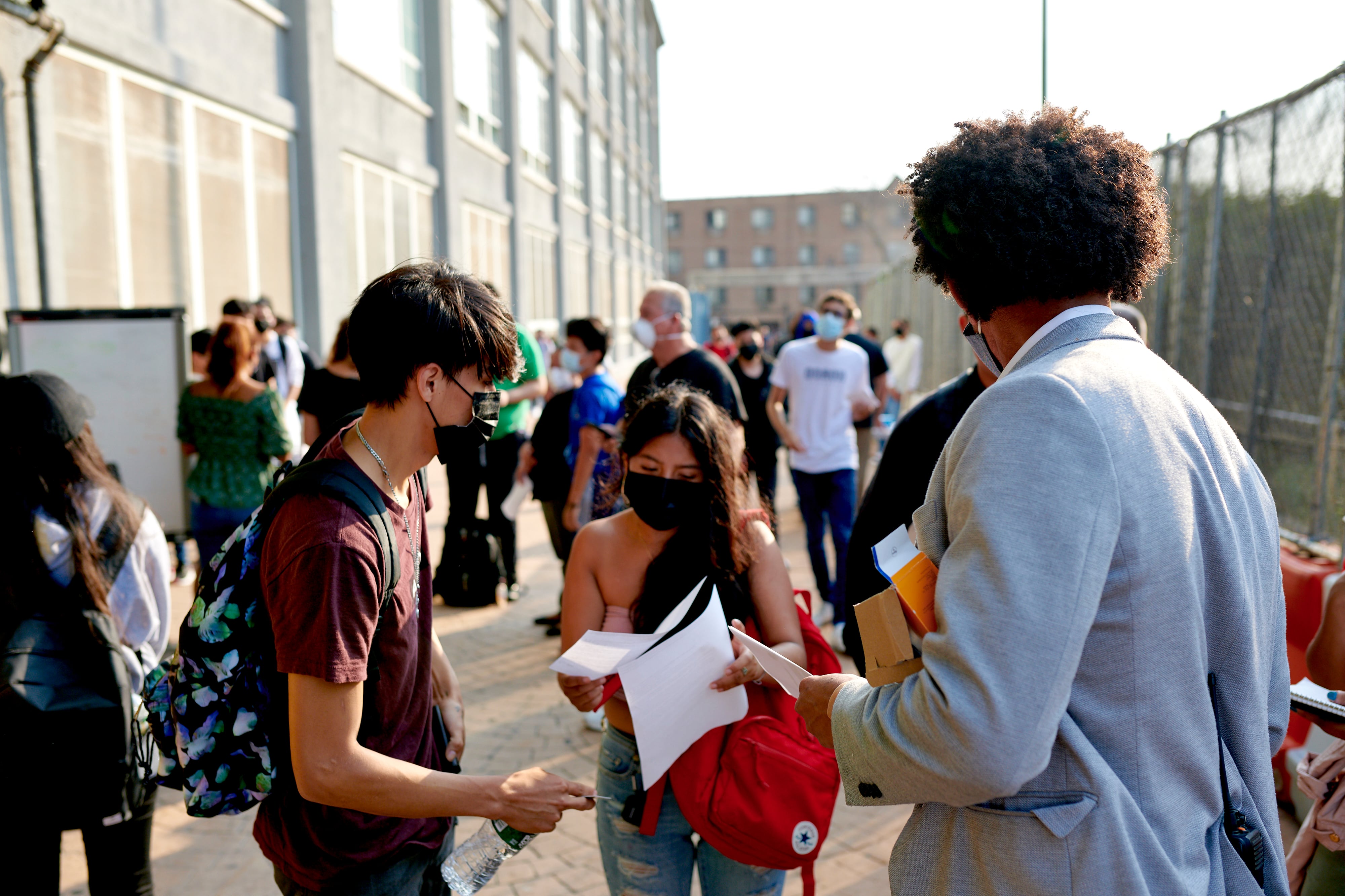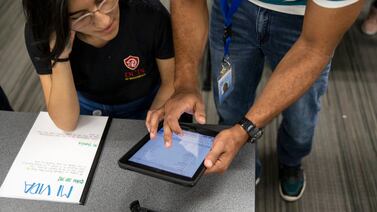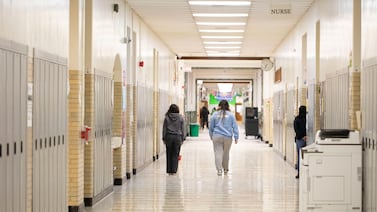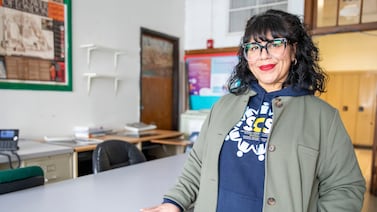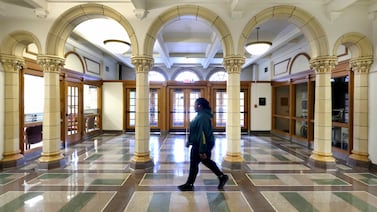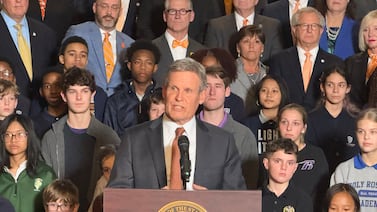Principal Emily Paige wanted to shift the culture of her school.
Her Brooklyn middle school, Urban Assembly Unison, had landed on the state’s list of low-performing schools five years ago and saw several reported incidents of disruptive or violent behavior.
Paige turned to her network of Urban Assembly schools for help, and they suggested her staff use a 10-minute online screener for each child to understand their social-emotional skills. Paige believes it was a first step in improving trust between students and staff and building an entire social-emotional curriculum at Unison.
“It helped the teachers begin to see ways of proactively building in opportunities for students to exercise positive behavioral habits that build up these skill sets,” Paige said.
Starting next month, staff at schools across New York City will begin using this screening tool — known as the Devereux Student Strengths Assessment, or DESSA — to understand students’ social-emotional health after nearly two years of unprecedented disruption.
How it will work: Teachers or other staff members will answer questions in an online screener about students. The questions will focus on a student’s social-emotional skills, such as decision making, self awareness, and personal responsibility. While officials have not pointed to a specific date, a department spokesperson said they’ll begin rolling out the tool to schools next month “so that adults have time to get to know students” before they fill out the screener, though it’s unclear if it will be the same screener Paige used or a shorter version. Officials are hoping staff spend the first few weeks of school “forming relationships” with students, such as through individual check-ins, as suggested in the system’s “Bridge To School” plan.
In July, the city awarded a three-year, $18 million contract to Aperture, an education technology company that created a platform that includes the screening tool itself as well as tools staff can use to determine what support students may need. Officials previously said the cost would be fully covered by the billions of federal COVID relief dollars that went to city schools. Twenty-five other schools use this screener already, according to a description of the contract to the Panel for Educational Policy, the largely mayoral appointed board that approves major school contracts and policies.
Some children might need individual or group counseling, mentoring, or small group social skill building, said an education department spokesperson. Others might need time in class to write in a journal. The tool could also help in creating behavior intervention plans for students. Even though the results will be used to determine support for students, schools won’t be required to provide anything specific, the spokesperson said.
Officials said the goal is for all schools to use the screener this year, but schools that are already using such tools won’t be expected to use it, the spokesperson said. The education department has started contacting “select schools” as well as department higher-ups to explain how schools can use the screener. The department plans to discuss the screener with more school communities, including staff and families, “in the weeks to come,” which could be through meetings, emails and professional development sessions.
It appears that many staffers aren’t yet aware how the screener will be used, and many families are unaware of their schools’ plans for social skills screening or that parents will be able to opt their children out of it. While some advocates are hopeful about the tool, they’re concerned about how — or whether — the assessment and its findings will be communicated to families.
“We just haven’t heard of a comprehensive plan to inform families about this assessment, and I think it’s important for families to know and for parents and caregivers to be aware that there are students being assessed, but then also what the results are,” said Rohini Singh, a senior staff attorney with the School Justice Project at advocacy organization Advocates For Children.
Singh emphasized that this tool does not screen for mental health needs and believes that sort of screening should be conducted by a licensed mental health professional.
Vanessa Velez, a social worker at a school in Manhattan, said she hasn’t heard any details about the screeners beyond what she has read in the news. She’s already getting staff referrals of students displaying signs of anxiety or in need of extra support, which usually come later in the school year.
She said she’s unsure if the screener will be helpful, especially beyond what schools may already be doing, and worries that it will turn into just another task for teachers.
“Not to say this wouldn’t be helpful, maybe for some schools it will be,” Velez said. “I think that’s a big issue — it’s this big unclear vague thing that’s supposed to happen.”
‘Permission’ to slow down
The DESSA screener was first created in 2008. City officials are touting the screening tool for being strengths-based — meaning it asks questions about a students’ positive behaviors and focuses on building those up, instead of seeking negative ones, such as whether a child frequently annoys their peers. That is also what makes Singh, the attorney from Advocates for Children, optimistic so that schools don’t solely focus on “risk factors.”
An early study of the DESSA screener showed it was “very effective” in identifying students with social, emotional and behavioral problems, by screening children who were already known to need support in those areas compared with their peers. A 2016 study showed that students who were identified as needing social-emotional support by a shorter version of the screener were 4.5 times more likely to have a “serious” disciplinary problem by the end of the school year.
At Unison, it can be hard to see some of the results on paper.
The school’s daily attendance rate had barely budged before the pandemic shuttered schools, according to data Paige provided. And chronic absenteeism actually worsened initially before improving by nearly 6 percentage points before the pandemic.
School surveys show that the percentage of students who said they trust their teachers grew slightly from the 2016-2017 school year, when the school was considered an “at-risk” school, and the following school year, though it dropped slightly in 2018-2019.
But for Paige, the change in school culture is palpable. A department spokesperson said behavior-related incidents at the school have dropped by 58% between 2014-2015 and the school year before the pandemic set in, though he declined to provide year-by-year data.
Paige said the screener allowed teachers to find ways for students to practice positive social skills, such as improving personal responsibility. For example, her teachers now know to carve out time to help sixth graders practice managing their schedules and classwork during the first month and a half of their school year, since those students are new to middle school and expected to take on more academically. The school used advisory sessions to work on these skills and now has an entire social-emotional curriculum, where students are starting to assess their own skills four times a year.
She thinks this tool will be especially important this year as many students return to buildings for the first time since March 2020. Many may have struggled in isolation for so long, while others may be dealing with the death of loved ones. Others may have thrived at home and are nervous about returning to school.
“This tool gives staff that time and that space and that permission to really slow down and think individually about each child in a way that I think all of our kids really need from us this year,” Paige said.
‘Drinking from a firehose’
Aperture, the company that created the screening tool platform, declined a request for an interview, instead referring Chalkbeat to city officials.
On its website, Aperture said it works with more than 3,000 schools, though it’s unclear if that includes the entire New York City school district. The state of Connecticut announced a deal with Aperture in March to purchase its social-emotional screening tool.
The company appears busy in the wake of the pandemic: In a May interview with a North Carolina publication, Aperture CEO Jessica Adamson said the company was “drinking from a firehose.”
Many schools that have long focused on social-emotional learning may have already created plans to address their students’ social-emotional needs after a vast disruption to in-person schooling.
Julie Zuckerman, who oversees Castle Bridge Elementary School in Washington Heights, said it’s been the school’s policy to check in individually with children and more so now, especially since there are children whom staff members haven’t seen for 18 months.
“The whole homecoming thing the chancellor is talking about? That’s how we start the year anyway,” Zuckerman said.

